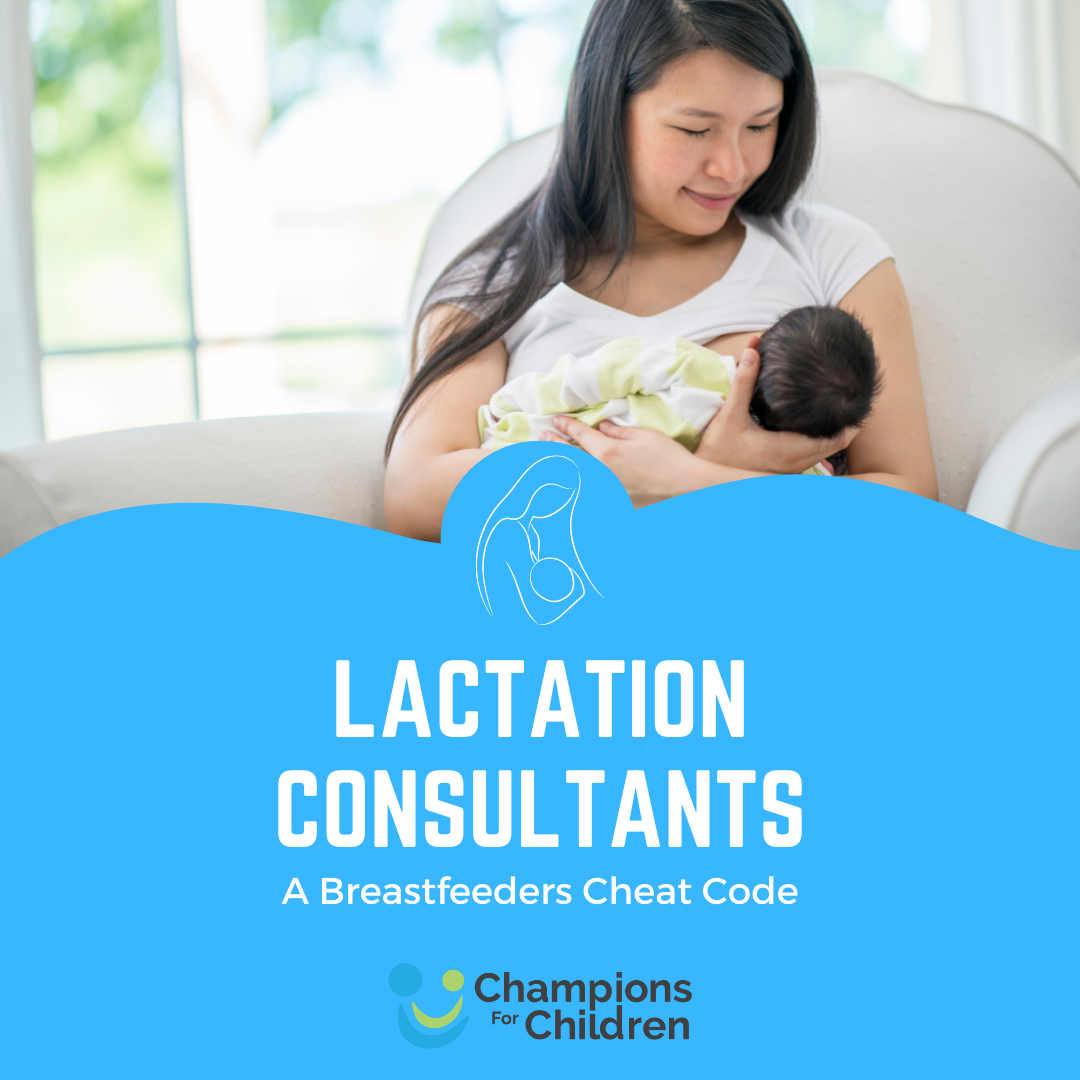Lactation Consultants
A Breastfeeder’s Cheat Code to Successful Breastfeeding

Do you remember the feeling you had when you were learning how to swim, learning a new skill or starting a new job? Frustration or fear may have set in and you may have felt like you would never get the hang of it. Learning to breastfeed can feel the same way, but with the proper guidance from IBCLC (International Board Certified Lactation Consultant), you’ll be well on your way to breastfeeding success!
IBCLCs are professionally trained breastfeeding specialists that educate parents on how to breastfeed their babies. They are trained in assisting with common nursing issues such as: difficulties with latching, pain while nursing, and low milk production. They also closely monitor babies to ensure that they are gaining enough weight and can advise you on what to do if they aren’t. When you reach out to an IBCLC, you are arming yourself with the best available breastfeeding support.
Clinical management and support of breastfeeding began in 1985. It was seen as an allied health profession and an exam was created to certify lactation consultants. Since then, the field and support for lactation consultants has grown. Becoming a lactation is not easy, but it is a rewarding profession. Every lactation consultant has a reason as to why they chose to become one.
Meet Cat, one of our Amazing IBCLCs at the abc Program.
 Cat, a Tennessee native, is a mother of 3 children – two bonus kids, Dakota (24) and Max (20) and her birth child Jax (11 years old). As a breastfeeding mother herself, she has firsthand experience about the challenges and rewards of breastfeeding. Cat credits her children with the reason why she became an IBCLC.
Cat, a Tennessee native, is a mother of 3 children – two bonus kids, Dakota (24) and Max (20) and her birth child Jax (11 years old). As a breastfeeding mother herself, she has firsthand experience about the challenges and rewards of breastfeeding. Cat credits her children with the reason why she became an IBCLC.
“Having my own child made me see the reason why you need a lactation consultant. I unfortunately didn’t work with any lactation consultants. I only got some help through a little leche League.”
According to the CDC, 60% of mothers don’t breastfeed for as long as they intended to. This is influenced by many different factors, but the main one being mother’s not knowing where to turn for breastfeeding support or lack of access to support.
Before becoming an IBCLC, Cat worked in the mental health field in Baker Act Facilities as a Mental Health Tech, mainly on children’s units. She also worked at Pinellas County WIC as a Breastfeeding Peer Counselor. She decided to become an IBCLC because she enjoyed working with families and was able to build rapport with them, which encouraged a trustworthy environment.
“I felt like I had been so lucky to fall into the field and that if I didn’t follow through with becoming an IBCLC that I would have wasted all the time and energy invested in me by Pinellas County WIC and the three wonderful IBCLCs who mentored me.”
Cat was so pleased to join Champions’ mission of preventing child abuse in November of 2016 because during the time she spent working in baker act facilities, she saw a lot of child abuse and really wished that she could be a part of preventing it.
As a lactation consultant, Cat says she has two main goals for the families she sees: (1) to help them reach their breastfeeding goals and (2) for them to feel less stressed with infant feeding.
“I am so honored to be a part of every family’s journey.” says Cat. “When I worked at WIC as a peer counselor one of my clients used two hand pumps under a nursing bib on the public bus to and from work, school, and home. Her baby had allergies to most common formulas. I will never forget that mom’s dedication and perseverance for what her baby needed.”
Breastfeeding is a beautiful journey between a mother and a child that sometimes needs a little guidance. There is no shame in requesting outside support – Champions’ abc Program is here to offer support! Let us help get you in the right direction. Call our Breastfeeding warmline at (813) 817-8084. If you’d rather be seen by one of our IBCLCs in person, call our office at (813) 673-4646 ext 1127 to make an appointment for a free consultation with one of our IBCLCs.
Links to Resources:
Breastfeeding (CDC)
